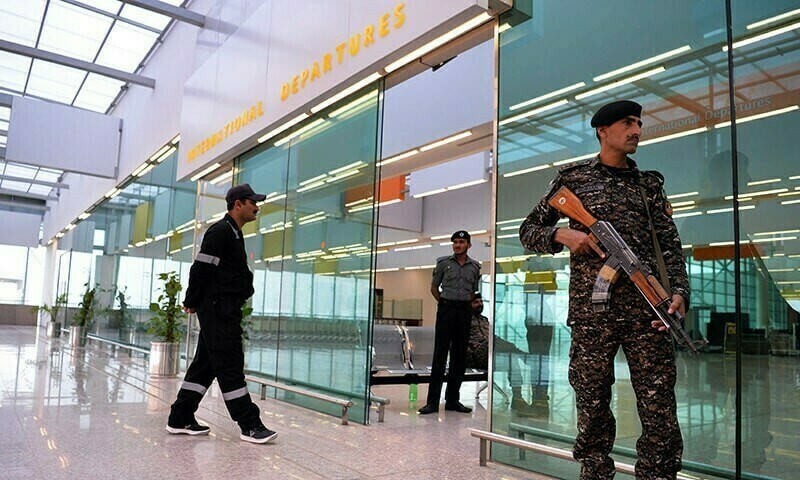
As Pakistan’s squabbling politicians bow out later this week, it seems likely that contentious elections to the National Assembly and the provincial legislatures are not likely to take place this year. A technocrat is expected to take charge of governance. His first priority would be to begin the process of repairing an economy that has run aground.
The process has significantly been set in motion by the outgoing government that has tweaked – with some more tweaks in the pipeline to put things on track — the Constitution and the laws pertaining not just to the economy, but also to security.
The difficult and complex task will be overseen by the two principal players, the army and the United States, both remaining in the background and letting the civilian bureaucrats/ technocrats do the job. Efforts of the outgoing alliance to put a ‘convenient’ man as caretaker have been thwarted.
Helping in the process will be the departure of two ‘inconvenient’ institutions. President Arif Alvi and Chief Justice of Pakistan, Justice Omar Ata Bandial are slated to retire in September. Both had impeded the process of the intended change for a separate set of reasons and had exacerbated political turmoil. Their successors may be more amenable.
Before that, a rebellious former Prime Minister Imran Khan, fighting for political survival and hoping to cash in on his perceived popularity, has been convicted in one of the many cases piled up against him and put in jail. Sensing the changed situation, there were no protests. Khan’s pleas to his supporters and the public at large to come out on the streets went totally unheeded. Analysts say that even if Khan wins an appeal against conviction and/or bail, his wings have been clipped.
All this may have smoothened the path for economic and security revamp. Shehbaz Sharif began the process by signing the Communication Interoperability and Security Memorandum of Agreement, known as the CIS- MOA, between Pakistan and the U.S. Notably, while The Express Tribune newspaper reported it, the government maintained silence and none in the media took up the cue.
Pakistan and the U.S. have agreed to further enhance their bilateral relations, including in the defence field, at a meeting last month between
U.S. Central Command (Centcom) Chief General Michael Erik Kurilla and Pakistan’s Chief of Army Staff (COAS) General Asim Munir.
CIS-MOA is a foundational agreement that the U.S. signs with its allies and countries with which it wants to maintain close military and defence ties. It also provides legal cover to the U.S. Department of Defence for ensuring the sale of military equipment and hardware to other countries. It is likely that the US may supply arms to a weapons-hungry Pakistan Army to help bolster its image, hit by political turmoil and Khan-led criticism.
On the economic front, more funds may be in the pipeline with not just the US, but the Gulf allies also chipping in. More important would be facilitating the outsourcing of the management — not a formal sale or mortgage – of key airports, railways, and several industrial enterprises. Moves are afoot to place Karachi, Lahore and Islamabad Airports and resuscitate the debt- ridden Pakistan International Airline (PIA).
On the energy front, Pakistan has transferred its entire shareholding in seven companies to a USD 8 billion sovereign wealth fund, offering stakes to foreign investors. They include Oil and Gas Development Corporation, Pakistan Petroleum Limited, National Bank of Pakistan, Mari Petroleum Company, Pakistan Development Fund and Neelum-Jhelum Hydropower, as per a Bloomberg report. Analysts say this is the “America moment” in Pakistan when the US can work to ‘contain’ China’s growing influence that impacts the vast Asian region. It may thus recover from its “Afghanistan debacle”, having evacuated from the neighbouring country in August 2021.






